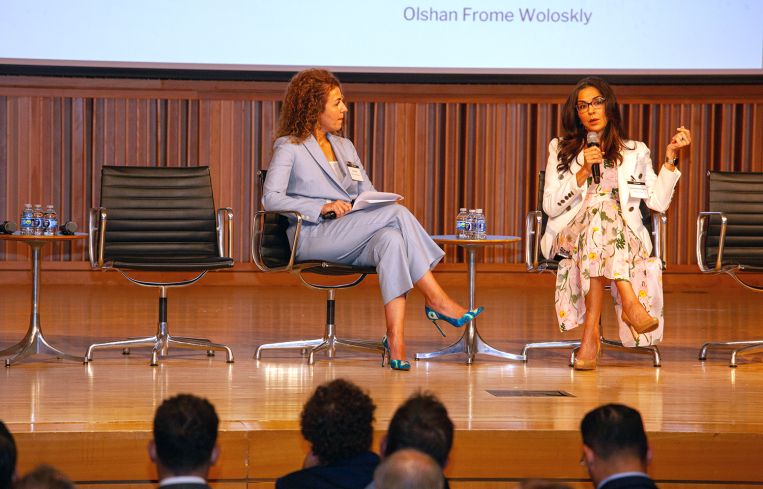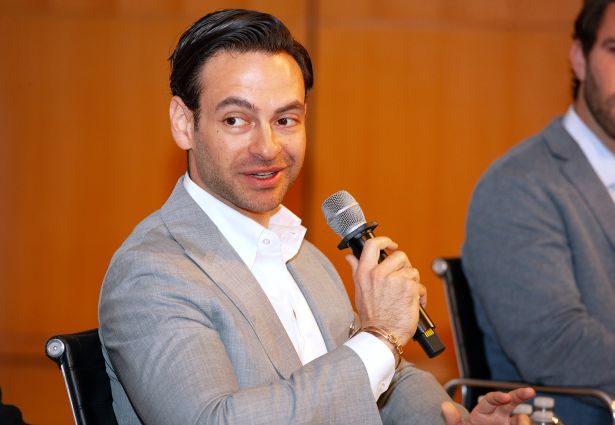Retail and Hospitality Real Estate Experts On the New Trends
The next frontier for stores and hotels might be as de facto community centers, according to those at a recent Commercial Observer forum
By Larry Getlen June 17, 2024 3:22 pm
reprints
Given the shifting fortunes of various commercial real estate asset classes, the relative strengths of both retail and hospitality have recently brought good news to those working in these sectors. That good news carries over into communities, too, a point driven home at Commercial Observer’s Retail & Hospitality Forum held June 13 at the City University of New York Graduate Center’s Elebash Recital Hall in Manhattan.
“As urban centers across the country work to rebound from the rippling effects of the global shutdown and shifting dynamics and workplace trends, the retail and hospitality industries have stepped up to the challenge of finding new and exciting ways to bring foot traffic to our cities,” James Freiman, CEO of Commercial Observer owner Observer Media, said in introducing the event.
After Freiman spoke, Olshan Frome Wolosky’s Nina Roket moderated an opening keynote discussion with Dayssi Olarte de Kanavos, president and COO at developer Flag Luxury Group.
Olarte de Kanavos spoke about how her company ensures their development projects are — as their name suggests — infused throughout with luxury.
“We focus a lot on the design,” said Olarte de Kanavos. “Ninety percent of all of our projects are bespoke. You’re not going to find this furniture off the shelf anywhere. Everything is customized.”
Talking about Flag’s development work with Ritz-Carlton, she shared the value of helping a prestigious, long-established brand think outside the box.

“We wanted to bring the Ritz-Carlton to South Florida,” said Olarte de Kanavos. “We found an incredible location in Coconut Grove and convinced them to not only do a hotel, but to let us bring in a hundred branded residences. At the time, it was very new for them. We sold out in record time and proved to the market that, by coupling with a brand like Ritz-Carlton, we could command 30 percent more than any other project in our comp set.”
The day’s first panel, “The State of Retail & Hospitality: Economic Drivers Impacting Investment in Consumer-Driven Industries,” featured Ilona Posner, partner at law firm Moritt Hock & Hamroff, as moderator, talking with Fred Posniak, senior vice president of leasing at Empire State Realty Trust; Christine Mastandrea, chief operating officer at Whitestone REIT; and Brandon Singer, CEO and founder of Retail by MONA.
Singer spoke about how, after a shift in retail strategy that began pre-COVID due to the rise in online sales, the pandemic served as a sort of retail leveler, seeing the end of businesses that couldn’t adapt well to the new paradigm.
As a result, the current retail field is filled with businesses that are better equipped for the modern retail landscape.
“Retailers had to figure out what was going on and how to change, adapting to e-commerce and figuring out how to utilize social media and other customer acquisition strategies,” said Singer. “Now, we’re in a healthy retail environment where brands and companies are getting smart as to how to distribute product and where they choose their locations. It’s very data-focused, understanding how to merge the online platform to the brick-and-mortar store platform.”
At a panel on the future of hospitality, Rika Lisslö, vice president of development for Hyatt Hotels, saw a future for hotels beyond conventional uses.
“Within hotels, we have an opportunity to be the living room of the neighborhood,” said Lisslö. “We tend to connect with guests when they’re traveling, so most of the time we don’t really connect with them. I see a future in us bringing people into our hotels when they’re actually at home.”
All the panelists emphasized the importance of food and beverage today, with Nouri Beesemer, senior director of hospitality strategy for developer and owner Related Companies, talking about the importance of “food as social currency.”
“The importance of dining at the right restaurants and showing that to your friends has increased,” said Beesemer. “Everyone’s become a food critic, and the social credit people chase for going to the right places is a driving force for restaurants these days.”
The panel also included insights from Matt Kliegman, partner at Authentic Hospitality and Black Seed Bagels; Guss Firestein, chief development officer at cafe and restaurant chain Maman; Matt Strauss, senior vice president of corporate development at Tao Group Hospitality; and moderator Daniel Lesser, co-founder, president and CEO of LW Hospitality Advisors.
A panel on the financing and development of hospitality and retail projects in the current urban environment was moderated by CO Editor In Chief Max Gross. He was joined by Ken Bernstein, president and CEO at Acadia Realty Trust, and Josh Wein, managing director at RAL Companies & Affiliates.
Asked about the continued difficulty of financing deals despite a seemingly healthy and revived retail environment, Bernstein said the perceived issues were more a case of borrowers disliking the terms and conditions of the current lending climate.
“Keep in mind that credit spreads now are back to a normal level,” said Bernstein. “The inability to finance really is code for ‘I hate the all-in interest rate and how much equity I have to put into something.’ In this reality of a healthier economy with more inflation and GDP growth but higher interest rates, we may just have to get used to that. Well-thought-out projects with retail and good credit are financeable today. You just may not like the rate.”
At a spotlight panel on the evolution of private clubs and other new dining concepts, panelists discussed how these clubs are becoming more specialized while also taking care to present a variety of exclusive offerings.
For the gym-focused Equinox Group, the obvious area of expertise is health and wellness. But Danielle Larsen, the company’s vice president of real estate, emphasized that Equinox does many deals with other brands to present a broad range of amenities to their members.
“We’ve launched a program called Equinox Circle,” said Larsen. “Our members have exclusive access to events with Dorsia, an online membership platform for tables at the best restaurants across the world. We have private dinners for our members. And we’ve done partnerships with StockX, an online auction platform. We’ve also partnered with Zero Bond and Soho House. That’s how we’re taking it to the next level to deliver that exclusive experience.”
The panel also featured insights from Julia Pei, chief business officer and partner at restaurant owner Major Food Group; David Gutstadt, principal at digital-focused consultancy Good City Studio; Sean Largotta, co-founder and partner at global membership platform Seven24 Collective and hotel Gansevoort Meatpacking NYC; and moderator Andrew Rigie, executive director of trade group New York City Hospitality Alliance.
The day’s final panel, on the changing dynamics of the shopping experience, emphasized the importance of utilizing data.
Jonathan Rood, executive vice president of development at Pacific Retail Capital Partners, reminded those in attendance of the importance of treating each day part as its own ecosystem, as the needs and draws of a retail environment change throughout the day, and to use all forms of technology to help.
“We’re trying to study what a placemaking experience looks like in the morning, in the afternoon, as well as the evening. That’s very important,” said Rood. “You can’t just stuff a tenant in there and say, ‘OK, they’re just gonna pay rent and it will be vibrant.’ We’re using a lot of technology — not only Placer.ai, but we’re dipping into AI because it’s challenging us to think a little bit differently about the future. It’s certainly putting big ideas on the board.”
The panel also included thoughts from Jack deVilliers, senior vice president and senior market officer at Regency Centers, which focuses on development of grocery-anchored retail; Sandi Danick, senior vice president and head of leasing at American Dream Mall; Jared Epstein, partner at Aurora Capital Associates; and moderator Casey Golden, founder and CEO at Luxlock, a retail management software platform.



